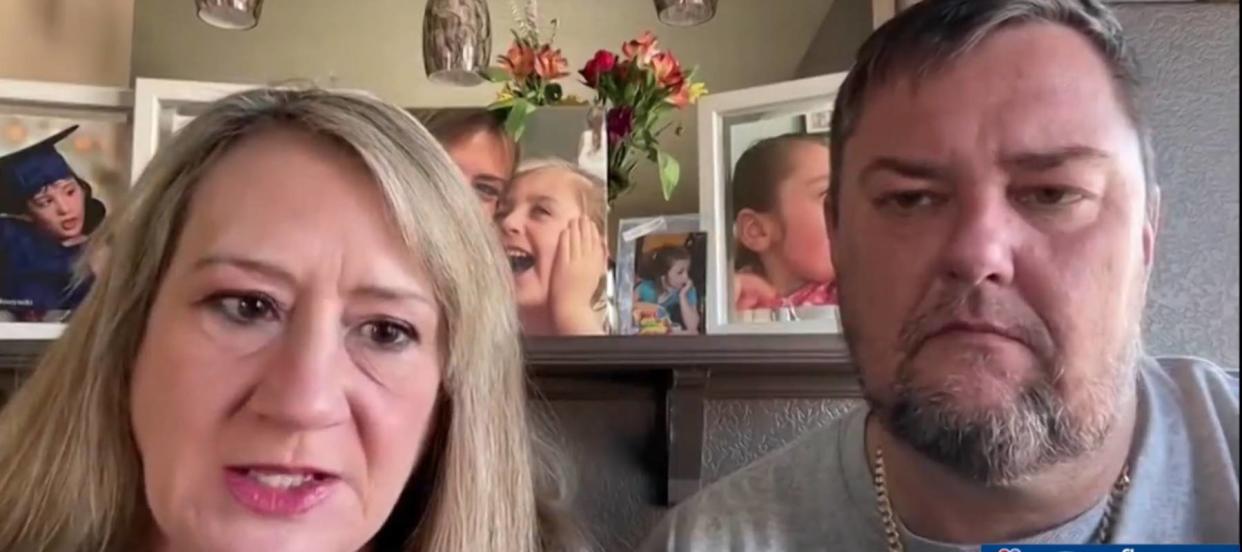‘It’s heartbreaking’: This Colorado family reported more than $250K missing from daughter’s special needs trust fund a decade before the center in question filed for bankruptcy

When Abagayle Muszynski was born with a terminal condition that caused cerebral palsy, epilepsy and blindness, her parents knew they wouldn't have long with their daughter.
But one thing they believed was certain was that they'd always have the funds to take care of her, thanks to a wrongful birth suit that was settled in 2013. However, as it turns out, the Muszynskis left that settlement money in the wrong hands.
Don't miss
'It's not taxed at all': Warren Buffett shares the 'best investment' you can make when battling rising costs — take advantage today
Car insurance premiums in America are through the roof — and only getting worse. But 5 minutes could have you paying as little as $29/month
Suze Orman says Americans are poorer than they think — but having a dream retirement is so much easier when you know these 3 simple money moves
Ten years ago, they realized between $250,000 to $350,000 had gone missing from Abagayle’s trust fund — and instead of spending their limited time with their daughter, they had to fight to try and get back what was rightfully hers.
Abagayle died at the age of 11 last November and the Muszynskis never recovered the lost funds, along with many other families who had money stored in trusts with the Center for Special Needs Trust Administration.
In February, the center filed for Chapter 11 bankruptcy after reportedly discovering founder Leo Govoni loaned himself $100 million over more than a decade and never repaid it.
“We uncovered this 10 years ago and tried to get every law enforcement agency involved so this didn’t happen and the FBI just completely failed,” Richard told WFLA News’ 8 On Your Side.
“It’s heartbreaking,” Kimberly adds. “It’s disgusting.”
A ‘decade long predatory scheme’
Govoni is believed to have removed the funds in a loan to the Boston Finance Group, a company he owned.
He responded to the accusations in a statement: "I dispute the allegations and characterizations in the filings of the Center as to the mishandling of any of the Center’s funds. I look forward to resolving this issue through the bankruptcy process or otherwise."
A Palm Beach County family also filed a class-action lawsuit against Govoni, his business partners and companies for allegedly operating a “decade-long predatory scheme” that siphoned money from more than 1,500 trust funds, reports the Tampa Bay Times.
Some families saw up to $4.5 million drained from their accounts.
"This is the most vulnerable group of people you could possibly take from. There's strict legislation in place about exploiting vulnerable people," Carol Mulholland told Fox 13 Tampa Bay. Mulholland was appointed to a creditors’ committee that’s following the bankruptcy case and representing the impacted families.
The company’s board of directors resigned in March, but the federal government is appointing a trustee to run the center in the meantime.
Read more: Jeff Bezos convinced his siblings to invest $10K each in Amazon and now their stake is worth over $1B — how to build your fortune without help from family
Caring for someone with complex medical needs
Many folks who depended on the funds for themselves and their dependents with complex medical needs were left devastated after receiving the bankruptcy notice — especially considering quality care can be costly.
Special needs trusts provide financial support to these individuals, but also shelters this income from jeopardizing their eligibility for disability benefits, like Medicaid or Supplemental Security Income, which typically come with certain income restrictions.
A trustee is often appointed to oversee the assets, and this person can be a friend, family member or a professional, like an attorney or corporate trust organization.
The Muszynskis say an internal audit alerted them about the missing funds and when they failed to get any answers from the center back in 2014. “We were denied and refused, and they filed an action against us to have us removed as trust protectors because we were questioning a lot about the money,” recounts Richard.
In an emergency motion in 2016, a judge removed the St. Pete center as Abagayle’s trustee after her parents claimed financial abuse and fraud. The family transferred the remaining $70,000 left in Abagayle’s fund with the Kansas State Trust and later moved to Colorado.
“It’s a top ADA state for disabilities and there’s a lot of resources including parental rights to be able to care for your kids with a home health care agency,” Kimberly told WFLA News. “There are a ton of resources that are not available in Florida that are available in Colorado [and] we wanted to give Abby the best quality of life.”
There are other options for families as well, like opening an ABLE account — a tax-advantaged savings account that can be used for “qualified disability expenses” like food, housing and support services, as well as education, transportation and financial management. This vehicle also allows folks to house their assets — they can contribute up to $18,000 for the 2024 year — without barring them from accessing disability benefits.
The Muszynskis hope sharing Abagayle’s story will make a difference for families in a similar situation.
“Don’t give up hope, just keep pushing, keep advocating,” says Richard.
What to read next
Thanks to Jeff Bezos, you can now use $100 to cash in on prime real estate — without the headache of being a landlord. Here's how
Rich young Americans have lost confidence in the stock market — and are betting on these 3 assets instead. Get in now for strong long-term tailwinds
'We're looking at a downsized America': Kevin O'Leary warns any new house, car you enjoy will be significantly 'smaller' — what he means and how to protect yourself in 2024
This article provides information only and should not be construed as advice. It is provided without warranty of any kind.
